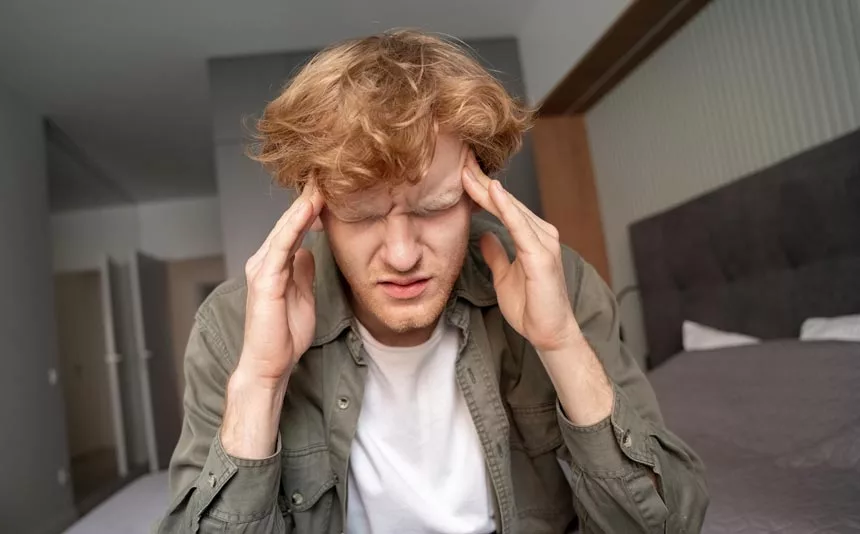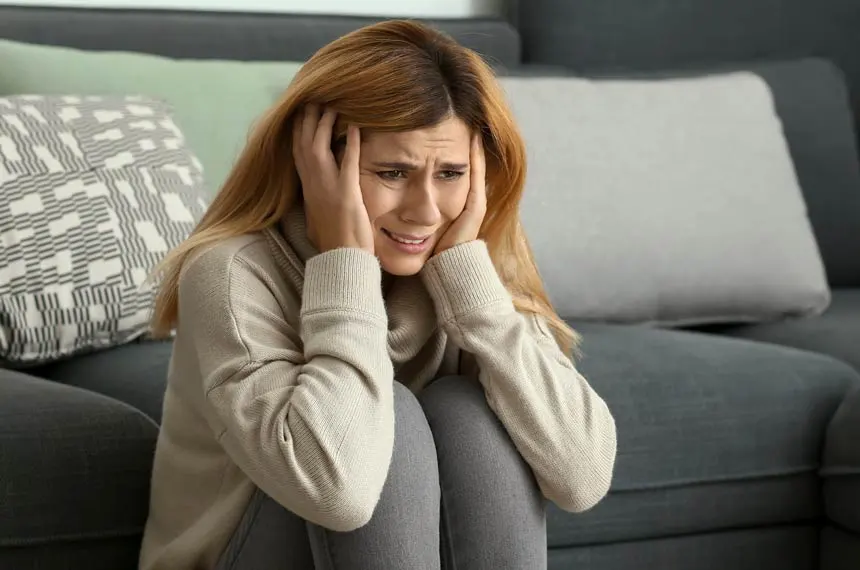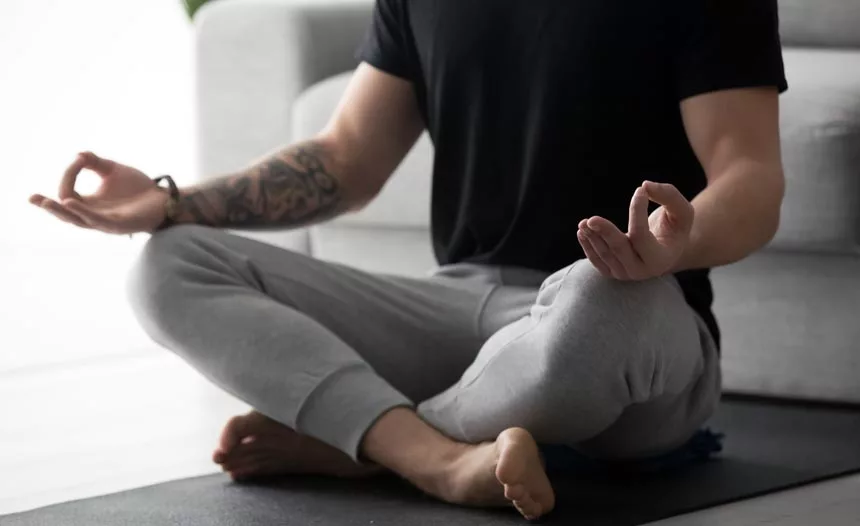Is it Normal to Hate Your Life?
Table of Contents
- Is it Normal to Hate Your Life?
- Understanding How Poor Mental Health Can Make You Hate Life
- The Most Common Mental Health Conditions in the U.S.
- The Impact of Your Emotional Well-Being on Your Physical Health
- Understanding the Relationship Between Mental Health and Substance Abuse
- How to Feel Better When You Are Hating Life
- Seeking Out Professional Mental Health Treatment
- Finding Mental Health Treatment and Substance Abuse Resources Near You
- I Hate My Life: What To Do When You’re Feeling Hopeless (FAQ)
- Medically Reviewed By
If you often find yourself thinking “I hate my life,” you can rest a bit easier knowing that you are not alone in having this thought. In fact, this very attitude has become increasingly common throughout the United States, particularly among young people.
There are many circumstances in which a person may begin to feel as though they hate life. The most common reason for these emotions, however, is the presence of undiagnosed or untreated mental health conditions.
If hating life has become a normal feeling for you, then continue reading on to discover what may be causing you to experience this thought, and what you can do to start finding hope in yourself and the world again.
Understanding How Poor Mental Health Can Make You Hate Life
Our mental and emotional well-being is absolutely crucial to our ability to effectively live life, and enjoy doing so in the process. Unfortunately, many people who struggle with mental illness do not realize this or do not have access to the right support to address these issues.
Having poor mental health can lead to several complications, such as a lack of motivation, or difficult thoughts and feelings which can make it hard to focus or feel fully present in the world around you.
These side effects can make people struggling with these conditions feel inferior to others, or as though they are constantly doing something wrong. This can lead to the worsening of their already complicated feelings, such as sadness, anger, and hopelessness.
Constantly feeling incapable of living a normal life, or having to work extra hard to do so, can make it extremely easy for negative ideas about life to form. Such as, of course, the debilitating thought of “I hate my life.”
The Most Common Mental Health Conditions in the U.S.
If you feel that you may be struggling with mental illness, know that you are not alone in this difficult situation. In fact, as of 2020, nearly one in five U.S. adults will be diagnosed with one of these conditions at some point in their lives.
In particular, young adults between the ages of 18 and 25 had the highest prevalence of serious mental illness compared to those above this age range. These numbers reflect a growing trend amongst young people and one which does not seem to be slowing down.
Amongst these individuals, the most commonly diagnosed of these illnesses within the nation are major depressive disorder, anxiety disorder, and bipolar disorder. An effective mental health rehab setting can assist when any of these conditions become too heavy a burden.
Signs of Major Depressive Disorder
Major depressive disorder, also referred to as clinical depression, is a mood disorder that affects how a person feels, thinks and behaves. These changes will often cause several emotional and physical problems, including a strong sense of hating one’s life.
While everyone will experience feeling unhappy or dissatisfied with their lives at some point, depression is a long-term issue, and one that will require professional help in order to be properly managed.
There are several emotional and physical health complications that may serve as a sign that you are struggling with a depressive disorder, including:
- Constantly feeling sad, tearful, empty or hopeless.
- Increased anger, irritability, or frustration, and becoming reactive even over small issues.
- Decreased interest in or ability to experience pleasure from several or all previously enjoyable activities, hobbies, or relationships.
- Having difficulty falling or staying asleep, or sleeping too much.
- Experiencing extreme fatigue or lethargy, with even small tasks requiring large amounts of energy to accomplish.
- Having a loss of appetite, or binge eating, leading to rapid losing or gaining of weight.
- Experiencing anxiety, agitation or restlessness.
- Thinking, speaking or moving more slowly.
- Feeling worthless and having low self-esteem or self-hatred, often being overly critical towards past mistakes.
- Having difficulty with thinking, concentrating, or making decisions.
- Frequently having suicidal thoughts, or actively attempting suicide.
- Experiencing otherwise unexplainable physical symptoms, such as body pain or headaches.
Many people who are struggling with depression have difficulty keeping up with their daily responsibilities and may distance themselves from their family members and friends. If you believe you may have depression, it is important to seek help before this issue gets any worse.
Signs of an Anxiety Disorder
Another reason why you may feel that you hate your life is if you are struggling with an unmanaged anxiety disorder. These may include general anxiety or panic disorder, obsessive-compulsive disorder, and post-traumatic stress disorder.
Each of these conditions can cause a variety of uncomfortable and even debilitating symptoms, the most common of which include:
- Hypervigilance, increased irritability, or general restlessness.
- Poor concentration and racing or intrusive thoughts.
- Sweating and trembling.
- Nausea and cramping.
- Increased heart rate or heart palpitations.
- Feeling anxious, or excessively worried, fearful, or having an impending sense of doom.
- Sleep complications, such as insomnia (an inability to fall asleep).
Constantly feeling in danger or unable to relax can be exhausting, and can make functioning normally in your day-to-day life impossible. With untreated chronic anxiety, it likely will not take long before this condition makes you hate your life.
This is why it is crucial to seek out professional behavioral health treatment options and services, before your anxiety disorder has a chance to become any worse, potentially leading to an even more negative perception of yourself and the world.
Signs of Bipolar Disorder
Bipolar disorder is a personality disorder that can cause rapid and sudden mood swings, which are often characterized by intense emotional highs (mania or hypomania) and lows (depression).
During a depressive episode, you may experience strong feelings of sadness or hopelessness, as well as a loss of interest or pleasure in usually enjoyable activities. When shifting to mania or hypomania, you may experience intense euphoria, as well as increased energy and irritability.
These mood swings can make it very difficult for you to function normally, often affecting your sleeping habits, job performance, home life, activity levels, judgment abilities, behaviors, and the ability to think or focus clearly.
There are several different types of bipolar and related disorders, including bipolar I, bipolar II, and cyclothymic disorder. The symptoms of each of these conditions can result in unpredictable behavioral and mood changes, causing extreme distress and intense disdain for life.
The Impact of Your Emotional Well-Being on Your Physical Health
When our bodies become stressed or responsive to danger, it produces two primary stress hormones: adrenaline and cortisol. These can increase your heart rate and blood pressure, interfere with your digestive system, and can weaken the immune system.
These interactions can allow the body to produce significant amounts of physical energy, something that would be necessary when fleeing or fighting an enemy. Once the threat has been removed, your body will then begin to return to a resting state.
While this can be extremely helpful while dealing with an actually dangerous situation, living in a constant state of stress and survival can cause extensive physical damage to your health. With these chemical levels raised in your system, your body becomes unable to properly rest.
Over time, this can have negative consequences on your organs and bodily functions, and may even make you less aware of these issues as your pain tolerance gradually increases in response to this constant state of fight or flight.
When dealing with chronic stress, a person may experience several physical side effects, including:
- Headache or migraine
- Tense or sore muscles
- Stomach pain, diarrhea, or appetite changes
- Difficulty sleeping
- Fatigue
Long-term depression can also cause a number of health complications extending past just difficult emotions, such as:
- Body pain
- Digestive issues
- Fatigue
- Headaches
- Eye complications
Individuals who have experienced, are currently living in, or have otherwise been exposed to traumatic situations may also be at risk of developing autoimmune disorders like Hashimoto’s thyroiditis, psoriasis, rheumatic arthritis, and several others. Despite their physical symptoms, a trauma rehab program or setting can also help treat the underlying causes that lead to these occurrences and provide relief.
Understanding the Relationship Between Mental Health and Substance Abuse
Many people with mental health conditions will often turn to drug or alcohol abuse as a way of relieving the painful thoughts and emotions these may cause. Although these substances may offer temporary relief from these symptoms, over time, they will only make them worse.
This will result in a dangerous cycle of repeated substance abuse as a way of managing these conditions, causing individuals to not only form addiction in the process, but make their mental illness worse, or lead to the development of new ones.
Furthermore, if someone who is abusing substances is predisposed to mental illness, this can trigger these conditions. While early treatment can help eliminate both issues, long-term drug or alcohol abuse may cause permanent changes to the chemistry of a person’s brain.
These co-occurring substance use and mental disorders are referred to as co-occurring disorders or dual diagnosis.
What are the Most Common Co-Occurring Disorders?
There are countless mental health disorders that can occur alongside a substance addiction, each of which will likely require extensive treatment in order to be properly addressed. The most common of these, however, include:
- Anxiety and panic disorders
- Depression
- Attention Deficit Hyperactivity Disorder (ADHD)
- Bipolar disorder
How to Feel Better When You Are Hating Life
It can feel impossible to get the thought that you hate your life out of your head once it’s there. However, there are ways to free yourself from these painful feelings. While you may have to start small in taking steps towards improving your emotional well-being, you can enjoy life again.
It is important to remember there is no wrong way to try and make yourself happy; the most important part of this process is to be kind to yourself, and continue to do the best that you can. With that being said, some ways of improving your mindset toward life include:
- Seeking Out a Mental Health Professional
- Talking With Family Members or Friends
- Removing Negative Triggers
- Maintaining Healthy Habits
- Practicing Mindfulness
- Practicing Self-Care and Compassion
Seeking Out a Mental Health Professional
While finding a professional therapist or other behavioral health providers can seem intimidating to many people, this can help you better understand your thoughts and emotions. In doing so, you can finally begin to create a happier, healthier, and positive mindset.
Understanding the causes for why you may be unhappy, and receiving the right clinical and emotional support to address these issues is essential in your ability to re-discover how to enjoy life again.
Talking With Family Members and Friends
For those who are unable, or not yet ready, to seek professional support, speaking with a trusted family member or friend may be their next best (and free) option. Compared to the previous step, this may be a more accessible and less intimidating means of support.
For example, younger individuals may feel more comfortable choosing to talk to their parents about their emotional concerns than speaking with a psychologist or counselor. This may ease them into the process of discussing their feelings, and eventually seeking out professional help.
Removing Negative Triggers
While it is normal to want to control every aspect of our lives, the reality of this is that it is simply not possible. There will always be circumstances that lie outside of our ability to influence them. This, unfortunately, can cause extreme distress for many people.
When it comes to feeling like you hate your life, this may often result from feeling as though you lack any real control over it. There may be various negative factors present in your surrounding environment, which may be contributing to your own negative mindset.
Removing these triggers is one of many small steps you can take to re-establishing a more positive outlook on life and is most important. This will require learning how to recognize the things you can and can not control, and re-adjusting which of these you focus on.
Learning how to set boundaries and becoming more comfortable with saying “no” to negative individuals in your life will also be a crucial part of this process. The right relationships will want to help nurture and support you while you are on the path to living a better life.
Establishing a firm idea of the behaviors and mindsets that you will and will not tolerate will help to rid your life of the individuals who wish to see you remain wrapped up in this hate and negativity, and allow you to explore healthier, and more balanced connections.
Maintaining Healthy Habits
Many people who struggle with mental illness tend to lose track of their ability to maintain basic healthy habits. This, of which, can significantly reduce their quality of life. Thus, one of the easiest ways to help yourself stop hating life is by building and maintaining better healthcare.
This includes fitting exercise into your daily routine, eating healthily, and cutting out toxic substances. Keeping up good hygiene practices, getting enough sleep, and drinking enough water are all also essential in maintaining a healthy and happy state of mind.
Even just having a routine of stepping outside to enjoy some fresh air in the morning, for example, can do wonders to boost your mood and replace your hate for life with appreciation for the small pleasures it has to offer.
Practicing Mindfulness
When you are being mindful, you are teaching yourself how to acknowledge, process, and release your destructive and negative thoughts or behaviors; such as, of course, the intrusive thought of “I hate my life.”
Simple mindfulness techniques include meditation, breathing exercises, and taking a moment to write about or reflect on your thoughts, feelings, and actions, practicing gratitude as you do so. This can significantly reduce stress, and allow you to more easily be present in your life.
Practicing Self-Care and Compassion
Remembering to be kind to yourself and replacing self-hate with self-love can be a great way to form a more positive outlook on life. This may include taking a moment for yourself to engage in activities such as:
- Take a nap
- Take time to read, write, or draw
- Going for a brief walk, or any other form of light exercise
- Listening to your favorite music
- Make sure to spend time and talk with a friend or other loved one
- Ordering or cooking your favorite foods
- Take time to watch a movie or show
- Take a bath or shower
- Get out into nature
Seeking Out Professional Mental Health Treatment
If you are struggling with a mental health disorder and feel you may need professional treatment in order to overcome these issues, there are several treatment options that may be helpful to explore.
This includes various forms of behavioral therapy services and local resources, including:
- Individual counseling sessions
- Group therapy sessions
- Family counseling services
- Cognitive Behavioral Therapy (CBT)
- Motivational Interviewing
For those who are struggling with a dual diagnosis, seeking out treatment providers that can cater to both of these issues will be essential in their ability to successfully recover from them.
Dual Diagnosis Treatment Options
When it comes to treating co-occurring disorders, many people will be advised to seek out support through a dual diagnosis treatment provider. These recovery services can help individuals both address their substance addiction and the underlying causes of these habits.
Dual diagnosis treatment may include a recovering individual’s participation in various services geared towards improving their state of mind and substance abuse habits, including:
- Therapeutic treatment options
- Medication-assisted treatment
- Stress management and coping skill training services
- Sober living support and relapse prevention programs
Finding Mental Health Treatment and Substance Abuse Resources Near You
If you commonly find yourself thinking “I hate my life,” know that you are not alone in having this thought, and help IS available. At Find Addiction Rehabs, we understand how difficult it can be to spend your life consumed by these difficult ideas and to believe that you do not matter.
But that’s why we’re here; our hotline is available 24/7 to connect you with the dual diagnosis treatment options and recovery resources you need to replace your hate for life with a newfound hope for and commitment towards your future.
So don’t wait; talk to one of our recovery representatives today, and let us help you take that first step on your path to finding hope, and re-discovering how to live a life free from your negative thoughts and habits, today!
I Hate My Life: What To Do When You’re Feeling Hopeless (FAQ)
How can mental health issues lead to drug addiction?
For many people, the first step on their journey to drug addiction was a mental health issue. The National Alliance on Mental Illness reports that about 10% of people with a mental health condition will also develop an addiction. For example, someone with depression may self-medicate by abusing alcohol or other drugs.
What are some actions you can take immediately to improve mental health?
The following are some actions you can take immediately to improve your mental health:
- Seek therapy/Go to a doctor.
- Eat healthy foods
- Get plenty of sleep
- Exercise regularly
No one of these tips will necessarily be a cure-all, but they all can definitely play a role in improving your mental state.
How to help your loved one who’s struggling with their mental health?
There are many things you can do to help someone who is struggling with their mental health. The most important thing is to let them know you are there for them. Sometimes people feel so isolated from the world that they don’t even realize that others care about them. It can be a relief for someone to know that someone else actually cares about them, even if it’s just a little bit.
Why is medication so crucial for mental health issues?
Medication is vital in treating mental health issues such as depression and anxiety. While therapy is essential for helping you manage your symptoms, medication can help reduce symptoms and improve your overall quality of life.
Nicole Rogers is an experienced and accomplished writer with special interests in the fields of Anthropology, English, and behavioral health, and has written countless articles for newspaper publications, institutional research journals, and Find Addiction Rehabs.
Her alma mater is Florida Atlantic University in Boca Raton. Nicole hopes to spread awareness of and combat the stigmatization surrounding addiction and substance abuse treatment through her writing and work in the field.







